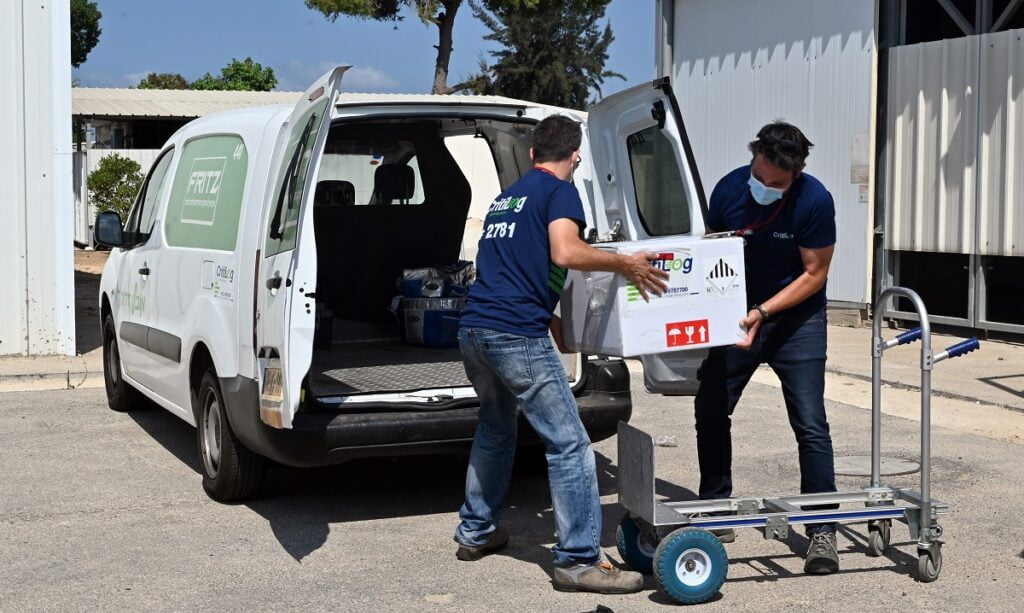Israel’s COVID-19 vaccine developer, the government-run bio-defense firm Israel Institute for Biological Research (IIBR), said on Sunday via a statement from the Israeli Ministry of Defense that its Phase II trial with the locally developed BriLife jab has been expanded to Georgia, according to plan.
The expansion comes a month after the IIBR teamed up with NRx Pharmaceuticals, a US clinical-stage pharmaceutical company to complete clinical trials and commercialize the vaccine. NRx Pharmaceuticals said at the time that it had arranged for rapid Phase IIb and Phase III testing of BriLife in Georgia and Ukraine — in addition to Israel — with support from the respective governments and health ministries, and in cooperation with US-based company Cromos LLC, a regional contract research organization (CRO) specializing in clinical trials.
The clinical trials in Georgia will take place simultaneously with the recruitment of volunteers and the completion of the trials’ second phase in Israel, which has been underway since late last year, the ministry said.
According to the announcement, NRx pharmaceuticals is expanding the Phase II trials abroad to increase the statistical sample and prepare the regulatory file necessary in order to approve further trials.
Over 1,000 vaccines arrived in Georgia over the weekend to begin the trial. The IIBR will accompany the process and continue to provide scientific knowledge and assistance to complete the trials, the ministry said.
In July, NRx Pharmaceuticals received an exclusive worldwide license to further develop, manufacture, and market BriLife, a name that combined “Bri,” which alludes to “briut,” the Hebrew word for health, “il” for Israel, and “life.”
The vaccine is a self-propagating, live-virus vaccine that uses vesicular stomatitis virus (VSV), an animal virus that does not cause disease in humans, and in which the spike protein was replaced with that of SARS-CoV-2, the virus that causes COVID-19. VSV is also the basis for a separate, effective vaccine against the Ebola virus.
The vaccine is based on a previous, FDA-approved vaccine platform that was further optimized by IIBR, NRx said. It is different than the Pfizer and Moderna mRNA vaccines, a type of jab that teaches our cells how to make a protein that triggers an immune response, rather than introducing a weakened or inactivated virus which has been the traditional vaccine approach.
The BriLife vaccine, which the IIBR scientists called a recombinant VSV-ΔG-spike or rVSV-ΔG-spike, had previously been tested on a number of animal models, including golden Syrian hamsters, mice, rabbits, and pigs, and was shown to be safe and well-tolerated, and able to bind and neutralize SARS-CoV-2 efficiently.
The full results for the BriLife vaccine have not been made public, so its efficacy against COVID-19 is lesser widely known than established vaccines like Pfizer’s and Moderna’s.
But NRx said it anticipates rapid and affordable industrial scaleup and manufacturing for BriLife which will initially be delivered by traditional injection.
Related posts

Israeli AI Safety Tool Among TIME’S Best Inventions For 2024

TAU Team Discovers Mechanism To Eliminate Cancerous Tumors

Ashdod Port Investing In Startups As Part Of Innovation Strategy




Facebook comments